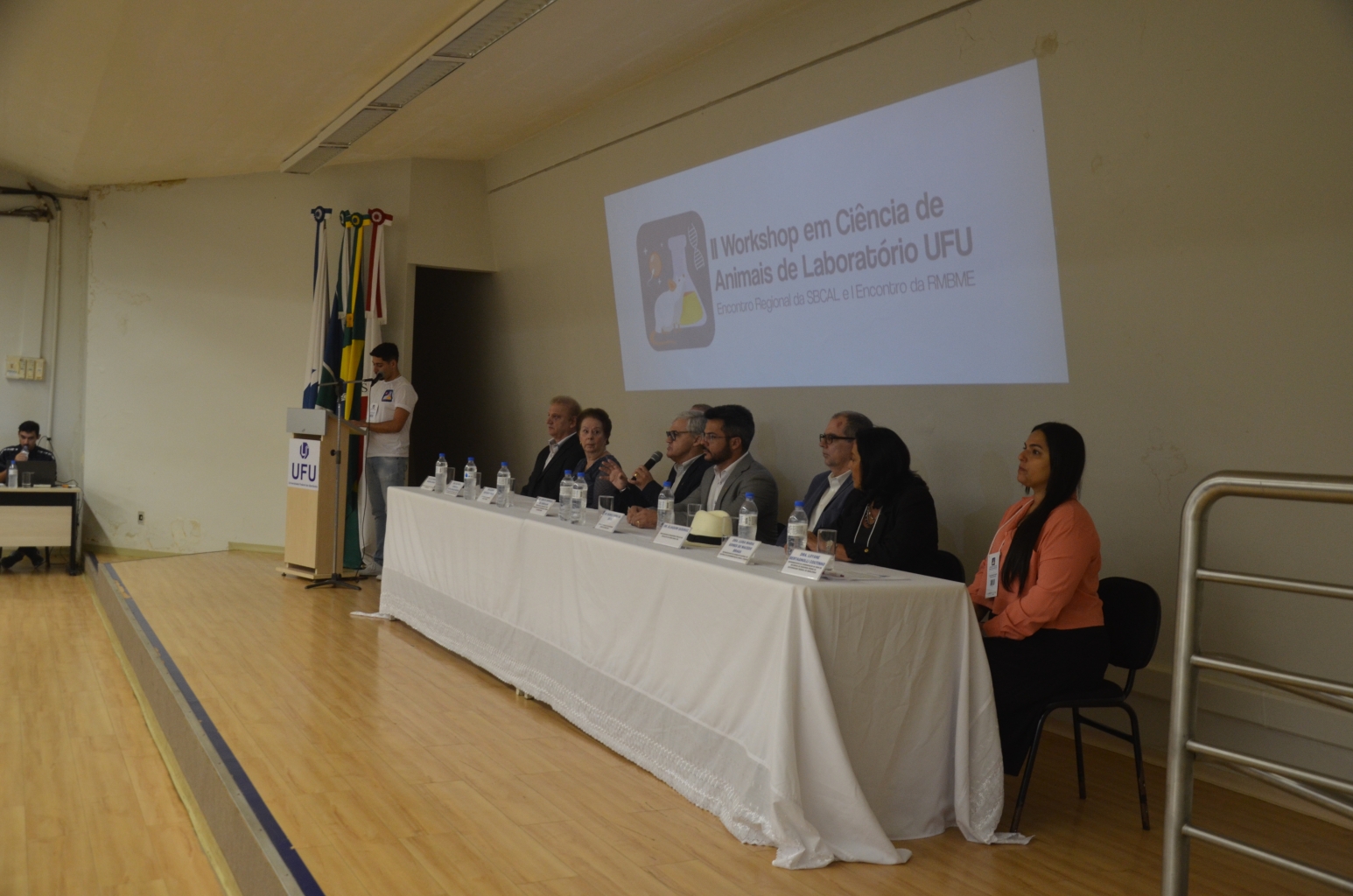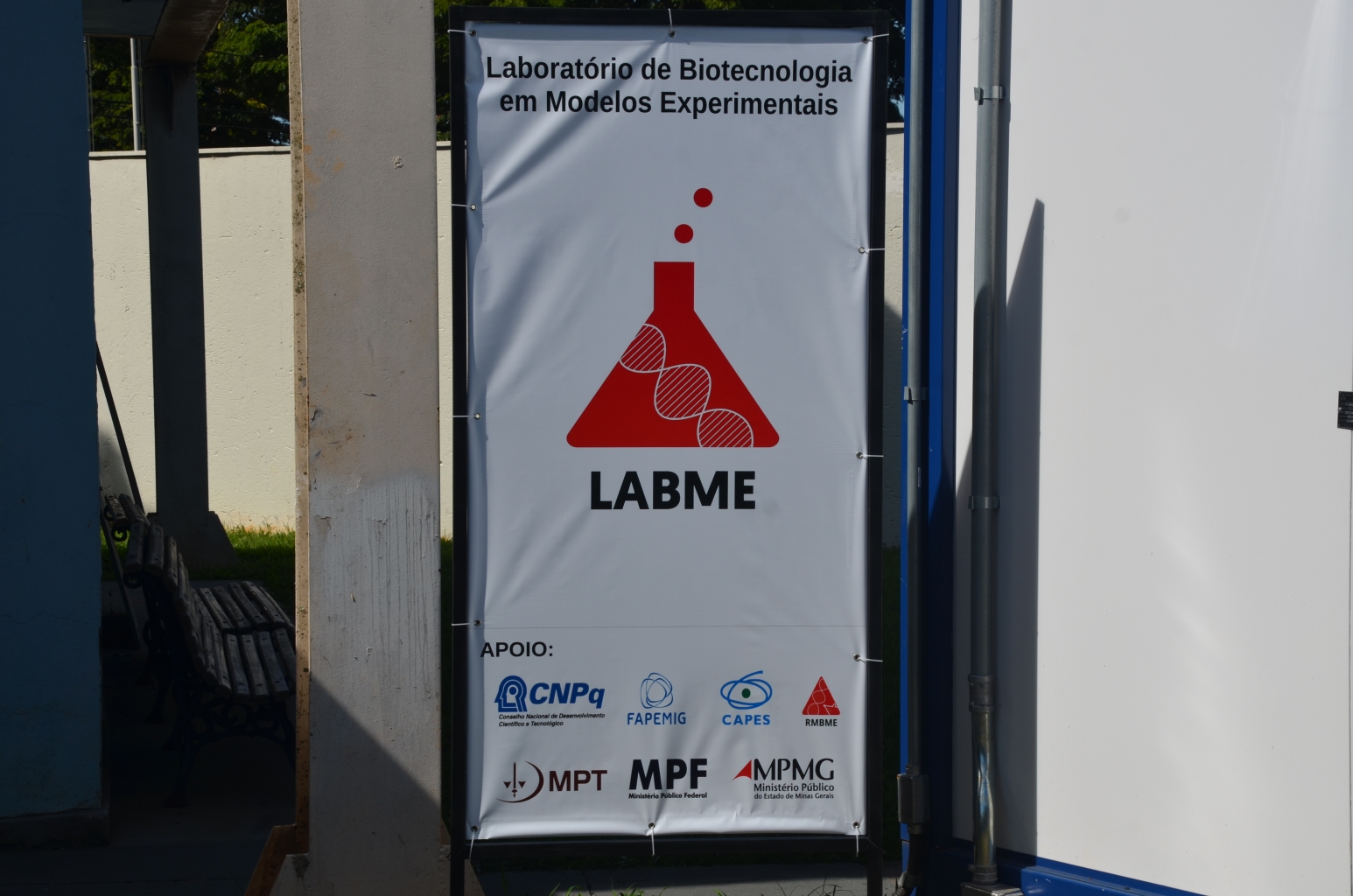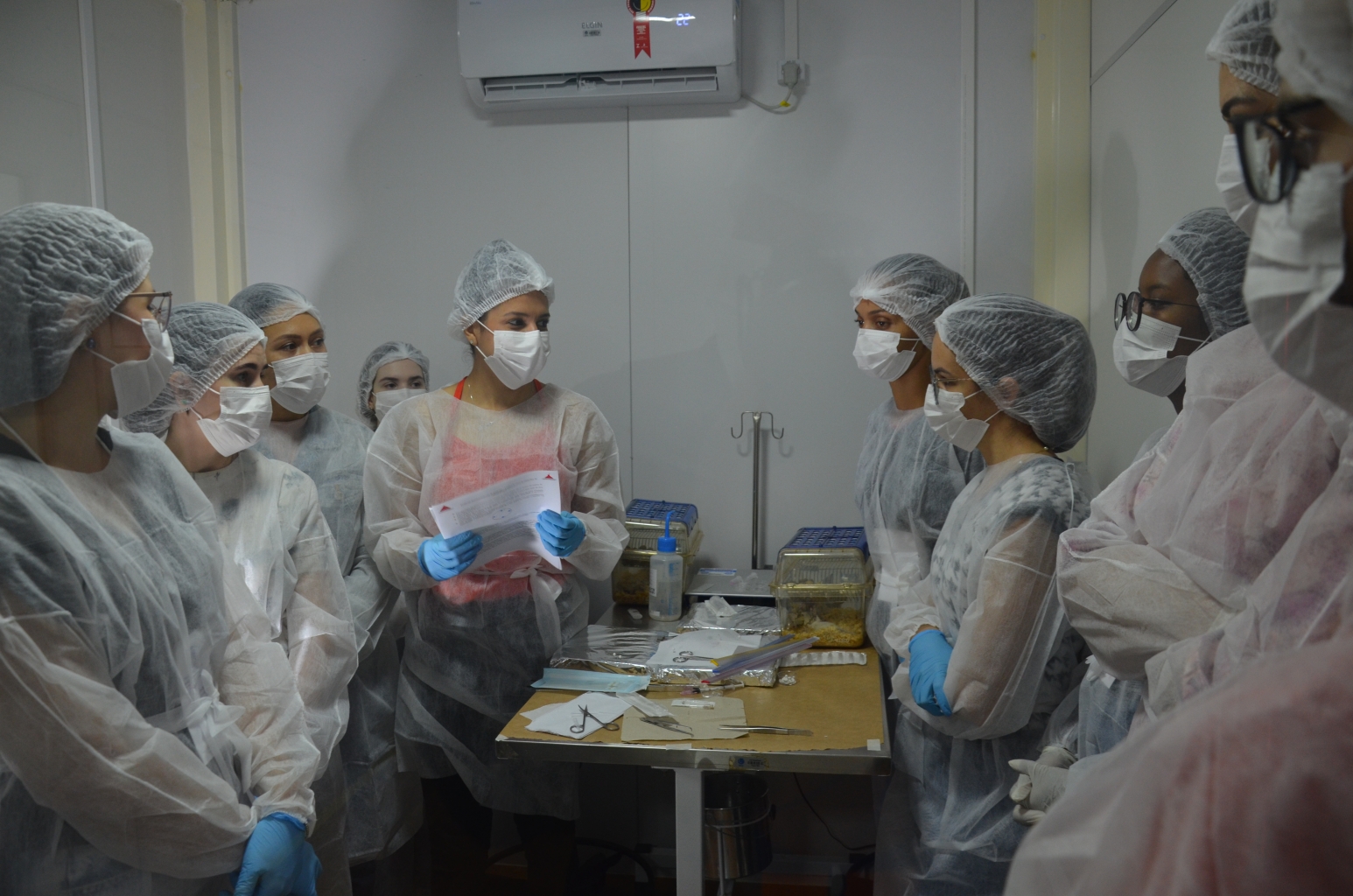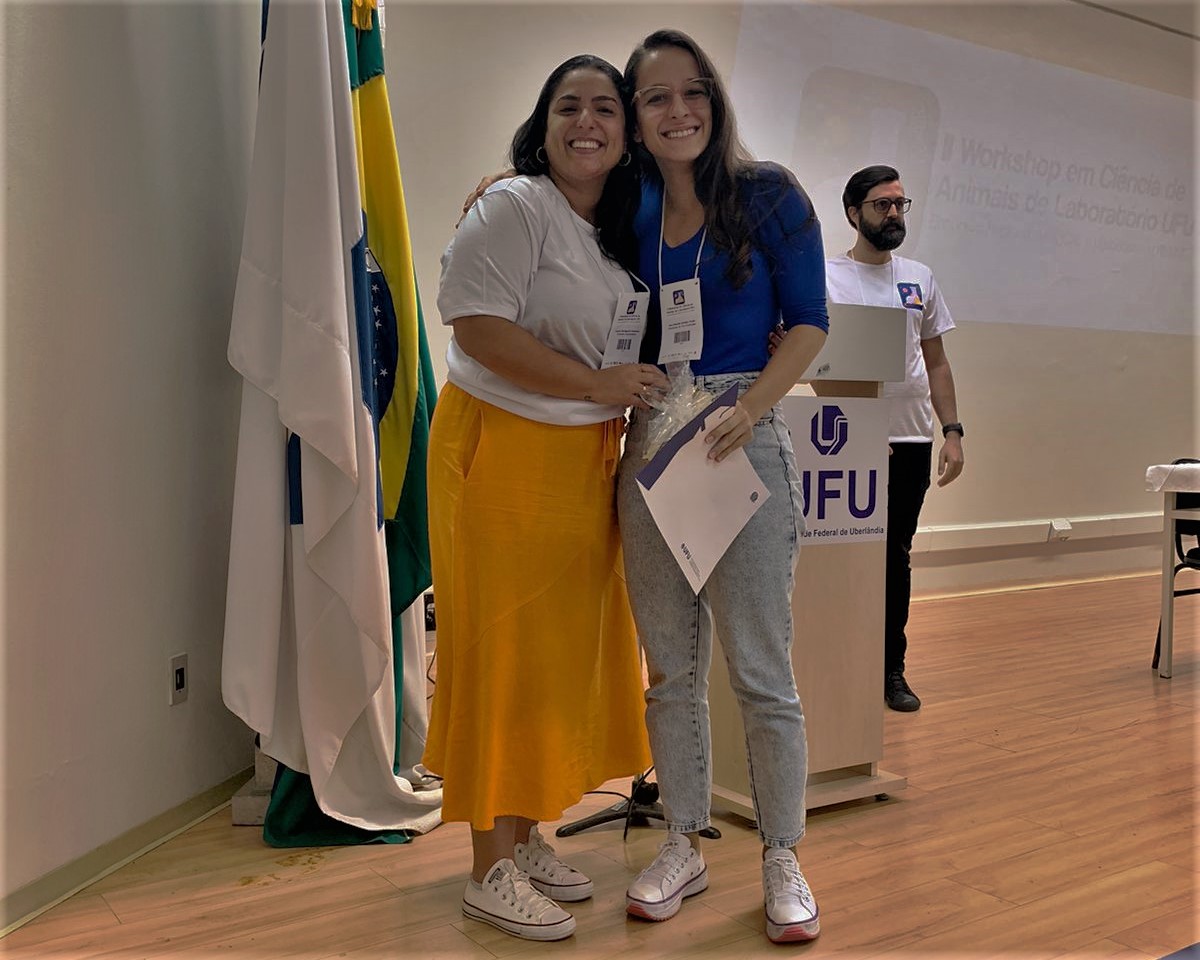On April 26, 27 and 28, the Rodent Animal Houses Network (Rebir), under the Dean of Research and Postgraduate Studies at the Federal University of Uberlandia (Propp/UFU), promoted its second workshop on in vitro animal science. The proposal was to offer Laboratory Animal Science (CAL) to undergraduate and graduate students, as a field of work for veterinary medicine, zoology, biological sciences, biomedicine, biotechnology and other related fields of training.
Over the course of the three days, many researchers in the area passed through the Omuwarama campus complexes in various activities, such as lectures, short courses, round tables, and job presentations. The opening ceremony was attended by UFU Dean of Research and Graduate Studies, Carlos Henrique de Carvalho. UFU Director of Research, Murilo Vieira da Silva; Uberlandia Labor Prosecutor’s Office, Eliakim Queiroz; Office of the Federal Prosecutor, Cléber Eustáquio Neves; representative of the International Council for Laboratory Animal Science (Ekaterina Akimovna); the representative of the National Council for the Control of Animal Experiments (CONCEA), Luisa Maria Braga; Chair of the Ethics Committee on the Use of Animals (Ceua/UFU), Luiz Fernando Isidoro; and actor Rebir Loyane Bertagnolli Coutinho.

The event is organized by the UFU Rodent Vivarium Network with support from Fapemig and private companies. (Photo: Alexandre Costa)
The first day consisted of five lectures covering the following topics: “What infrastructure do I need in a rodent tank?” ; “The right path to publications in journals in the field of CAL”; “Technological Advances in Biosafety Level 3 Laboratories”; “Regulations and Procedures for Submission of Projects or Lesson Plans” and “Legal Updates Applicable to Research at CAL”. Speakers included Marcel Flablatt, editor-in-chief of Revista Biological Models Research and Technology (BMRT), and Rafael Resende, public health technologist at Fiocruz.
In addition to the lectures opened Laboratory of Biotechnology in Experimental Models (Labme). Founded by Rede Mineira de Biotecnologia em Modelos Experimentais (RMBME), it aims to develop CAL in Minas Gerais. It is located on Campus Umuarama, next to Rebir, in an 8G container.

With a multidisciplinary team, the laboratory brings together several UFU researchers. (Photo: Alexandre Costa)
“This year we had the pleasure of carrying out the first procedure of Rede Mineira de Biotecnologia in experimental models together with [ao workshop]Vieira, a project funded by Fapemig, is of great importance for the UFU, since we have the interaction of five universities and it is the UFU that coordinates all the activities.
short courses
The second day of the event featured short courses held in Buildings 8H, 8G and 2B, as well as a technical visit to Rebir. The topics were: “Histological techniques for processing biological materials”, “Topics in mouse embryo cryopreservation” and “Methods for handling and insemination of laboratory animals”. The lecturers are Loyane Bertagnolli, Débora Santos, Flávia Ferreira, Ana Paula Navarro and Iasmim Cunha, researchers from UFU; Plus Alessandra Ramos, Tech at Fiocruz.
“The idea for the short courses arose from the demands that we have at Rebir regarding practical activities, such as, for example, proper handling of rodents and, after completion of the collections, how to process the collected material in order to facilitate assessments, to obtain quality research. In addition To this, and because of the curiosity of those users who are at the beginning of their journey in scientific research, explains Bertagnoli, who, in addition to teaching one of the short courses, was also part of the team organizing the event.
The mini-course on cryopreservation sought to introduce Labeme to the community. “Considering that the handling and preparation of materials are fundamental and essential elements for the development of quality scientific research, the idea of the mini-course came with the intention of introducing Labme to the scientific community, which came to add Rebir while also providing services such as, for example, the freezing of mouse embryos in UFU “, Bertagnolli continues .

Flávia Ferreira (center, paper in hand) works in the laboratory and was one of the lecturers on the short course. (Photo: Alexandre Costa)
Oral presentations, a round table and two lectures concluded on the second day of the event. Among the speakers was Maria Ines Rossi, Coordinator and Professor of the Professional Master’s Course in Laboratory Animal Sciences at Fiocruz. and Bruna Teemi, technician at the Vivarium of the School of Medical Sciences in Santa Casa de São Paulo.
Oral presentations
The highlight of the last day of the workshop was the oral presentations by the UFU students. Several students submitted their proposals and they were evaluated by a scientific committee. Ana Claudia Gontigo Couto, a master’s student in UFU’s Graduate Program in Genetics and Biochemistry, made the best rated exhibition and won an honorable mention. Her research topic is “Evaluation of the Protective Role of Botox on Anxiety and Depressive Behaviors in Mice with Chronic Orofacial Pain”.

Ana Claudia Gontejo Couto (left), Medal of Honor recipient. In all, 19 students performed. (Photo: Rebir Archive)
Other highlights of the day were the roundtable “Alternative Methods for the Use of Laboratory Animals in Scientific Research,” authored by José Luiz Zhivago, veterinarian at the University of Brasília (UnB); Frank Alarcon, coordinator of the British NGO Cruelty Free International in Brazil; and Murilo Vieira, director of research at UFU.
The second workshop on Laboratory Animal Science was held together with the Regional Meeting of the Brazilian Society of Laboratory Animal Science (SBCAL) and the I RMBME meeting. The workshop was an initiative funded by public notice by the Research Support Foundation of the State of Minas Gerais (Fapemig), with the support of the Research Council (Dirpe / UFU), the Social Media Council (Dirco / UFU) and the following companies: Quimtia, Alesco and Animal Pro (LabDiet), Labspeq, Insight, and Granja RG.
“Holding an event like this fulfills our desires when it comes to research. In the past few months, we conducted a study in which all searches were associated with a specific Sustainable Development Goal (SDG). We saw that UFU has a great potential for scientific development in the field of life sciences and a lot of Research in this area needs experimental animal models. So when you have an event like this, where possibilities for improving CAL are discussed, you have an impact on the quality of all these related areas,” Vieira concludes.
You can find more photos of the event at Part 1 that it Part 2 From the UFU galleries in the pictures.
Usage policy: Copies of text, images and other content posted by the Department of Social Communication of the Federal University of Uberlandia (Dirco / UFU) are free of charge; However, we require that the author(s) and Portal Comunica UFU be mentioned.



![[VÍDEO] Elton John’s final show in the UK has the crowd moving](https://www.lodivalleynews.com/wp-content/uploads/2023/06/Elton-John-1-690x600.jpg)

More Stories
The Director of Ibict receives the Coordinator of CESU-PI – Brazilian Institute for Information in Science and Technology
A doctor who spreads fake news about breast cancer is registered with the CRM of Minas
The program offers scholarships to women in the field of science and technology